| Article ID | Journal | Published Year | Pages | File Type |
|---|---|---|---|---|
| 2011499 | Pharmacological Reports | 2013 | 7 Pages |
BackgroundMethamphetamine (METH) causes hyperthermia and dopaminergic neurotoxicity in the rodent striatum. METH interacts with σ receptors and σ receptor antagonists normally mitigate METH-induced hyperthermia and dopaminergic neurotoxicity. The present study was undertaken because in two experiments, pretreatment with σ receptor antagonists failed to attenuate METHinduced hyperthermia in mice. This allowed us to determine whether the ability of σ receptor antagonists (AZ66 and AC927) to mitigate METH-induced neurotoxicity depends upon their ability to modulate METH-induced hyperthermia.MethodsMice were treated using a repeated dosing paradigm and body temperatures recorded. Striatal dopamine was measured one week post-treatment.ResultsThe data indicate that the ability of σ receptor antagonists to attenuate METH-induced dopaminergic neurotoxicity is linked to their ability to block METH-induced hyperthermia.ConclusionThe ability of σ receptor antagonists to mitigate METH-induced hyperthermia may contribute to its neuroprotective actions.
